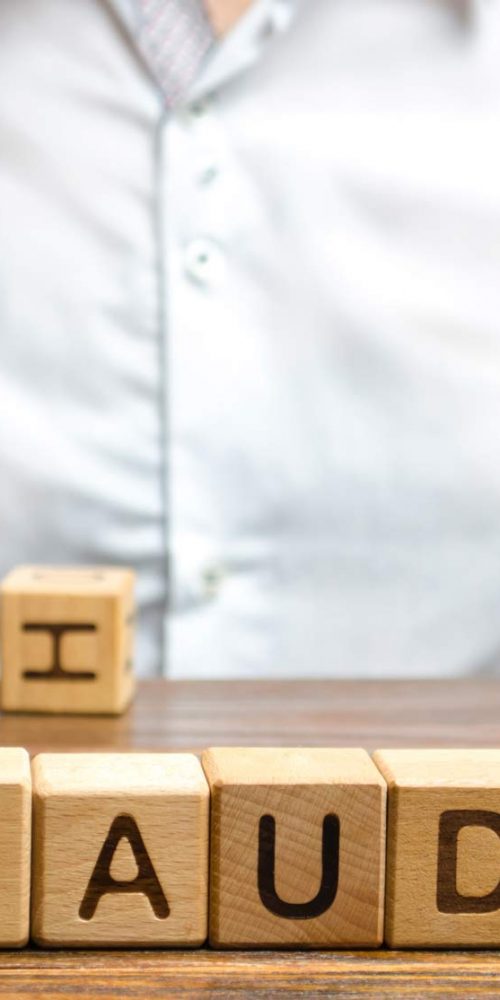Encountering debt collectors can evoke feelings of distress and uncertainty. To navigate these challenging situations effectively, it is crucial to be well-informed about your legal rights and the protections available to you. This knowledge empowers you to respond proactively and safeguard your financial interests, ensuring that you don’t feel overwhelmed during these encounters.
Debt recovery agents utilize a range of tactics that may create confusion and anxiety, often pressuring individuals into making payments or surrendering assets that they may not owe. If you find yourself a target of such practices, it’s vital to understand your rights clearly. Being aware of the legal framework surrounding debt collection can help you protect yourself from potentially deceptive and aggressive tactics employed by these agencies.
It’s important to understand that a debt recovery agency operates under a unique set of legal guidelines that differ from those governing bailiffs or debt enforcement officers. Unlike bailiffs, debt collectors possess limited authority and must adhere strictly to statutory regulations. This distinction can significantly enhance your ability to manage these interactions and maintain control over your circumstances.
Debt collection agencies hold the same restricted legal powers as the original creditor. Initial contact typically occurs through letters, phone calls, emails, and text messages, which are recognized as standard practices within the debt collection process. Familiarizing yourself with how these communications function can empower you to respond effectively and manage your financial interactions with confidence.
While debt collectors might imply potential legal actions, it’s essential to recognize that they may legally exaggerate their judicial powers. This tactic can create significant confusion and stress for debtors, underscoring the necessity of understanding your rights thoroughly. Clarity regarding your legal standing in relation to the debt can help alleviate anxiety and empower you to take appropriate actions.
If your lender has transferred your debt to a collection agency, understanding their rights and restrictions is vital. This knowledge is crucial in avoiding any misleading pressures that could lead to unfavorable agreements, ultimately safeguarding your financial stability and ensuring that you make informed decisions regarding your debts.
 Know Your Legal Rights: When Can Debt Collectors Legally Visit Your Home?
Know Your Legal Rights: When Can Debt Collectors Legally Visit Your Home?
Debt collectors, whether they are directly employed by your lender or associated with a third-party collection agency, do possess the legal right to visit your residence. However, it is crucial to grasp the strict limitations governing their behavior during such visits. Understanding these boundaries can significantly protect your rights and help ensure that any interaction remains respectful and within legal parameters.
It is illegal for a recovery agent to impersonate a bailiff or sheriff. If a collector attempts to do so, you may have valid grounds for legal action against them, as this behavior constitutes a criminal offense. Being well-versed in these laws allows you to assert your rights confidently and respond appropriately when confronted with such unlawful tactics.
While it’s common for debt collectors to reach out via phone or mail rather than in person, if they do come to your door, remember that you are under no obligation to engage with them or allow them entry into your home. Always prioritize your own safety and comfort during these interactions, and remember that you hold the right to refuse entry.
If you require identification from a debt collector, they are legally obligated to provide it upon request. Furthermore, they cannot seize any of your belongings without your explicit consent, reinforcing your rights during these encounters and ensuring that you remain in control of the situation.
Most importantly, you should never feel pressured to make immediate cash payments to the debt recovery agency at your door. It’s advisable to contact the collection agency later to negotiate a payment plan that aligns with your financial capabilities. If you decide to make a payment directly to a collector at your home, ensure you verify their identification and obtain a receipt to document the transaction for your records.
Protect Your Property: Can Debt Collectors Legally Seize Your Belongings?
Individuals working for a debt recovery agency do not possess the legal authority to enter your home or seize your belongings, including clamping your vehicle. This distinction is vital since bailiffs have different legal powers and can remove items belonging to a debtor under specific conditions. If a debt collector appears at your residence, remember that they cannot take your possessions without your explicit consent, and you are under no obligation to grant them access to your property.
Understanding the Legal Timeframes for Debt Collection: How Long Can Creditors Pursue Unpaid Debts in the UK?
Ignoring unpaid debts is never a wise approach, and it’s imperative to address them proactively. Unresolved debts can cause immense stress and emotional turmoil, making prompt action essential for maintaining your overall financial health and well-being.
Your creditor retains the legal right to pursue the debt over an extended period, employing various methods, including hiring debt collectors and bailiffs to recover the owed funds. Understanding this process can help you manage your expectations and responses effectively, allowing you to navigate your financial obligations with greater clarity.
According to the Limitation Act 1980, creditors can pursue unpaid unsecured debts for a maximum of six years. This period can extend to twelve years for mortgage shortfalls, emphasizing the necessity of addressing debts promptly to prevent escalation and potential legal consequences that may arise from prolonged inaction.
With persistent pressure from creditors through regular calls and correspondence, the six-year limitation on unpaid debts may feel overwhelming. However, it’s crucial to understand that this ‘limitation period’ only begins after your last payment or acknowledgment of the debt, highlighting the importance of maintaining timely communication with your creditors.
If you have not acknowledged the debt in writing within the six or twelve-year timeframe, and no County Court Judgement (CCJ) has been registered against you, the creditor’s ability to enforce the debt may be significantly restricted. However, if a CCJ has been issued, the limitation period becomes irrelevant, underscoring the need for diligent debt management and prompt action to prevent legal repercussions.
Understanding the Consequences of Ignoring Debt Collection Agencies: Essential Information You Must Know
While we do not recommend making payments to any debt collector who arrives unannounced at your door, we strongly encourage taking the necessary steps to address your debts responsibly. If you prefer to avoid payments directly to the debt recovery agent, politely decline their requests for payment and instead contact the original creditor to address the situation in a more effective manner.
Reaching out to the creditor enables you to verify the legitimacy of the debt, ensures transparency regarding the allocation of your funds, and helps establish a manageable payment plan that suits your financial situation. This proactive approach can provide peace of mind and a clearer path forward in your financial journey.
Legally, you are not obligated to make payments to the debt collection agency that arrives at your home. However, if you also choose not to repay the creditor, it may lead to severe repercussions. The creditor can continue to pursue the debt aggressively, which could result in bailiffs appearing at your doorstep or even receiving a County Court Judgement.
If you feel overwhelmed by frequent visits from debt collectors and are struggling to find the necessary funds to settle your debts, consider exploring a <a href=”https://limitsofstrategy.com/debt-consolidation-loans-essential-questions-to-consider/”>debt consolidation loan</a>. This option can alleviate the stress of dealing with debt collectors while allowing you to make manageable monthly repayments. For any inquiries regarding our debt consolidation services, please call us at 0333 577 5626 or complete our online contact form, and one of our experts will reach out to assist you in navigating your financial challenges.
Explore Essential Information: Stay Informed with Trending Topics

Debts During the Coronavirus Pandemic
Effective Strategies for Managing Debt During the COVID-19 Pandemic

Helping Vulnerable Children: Marks and Spencer’s New Initiative
Supporting Vulnerable Children: Marks and Spencer’s Initiative to Provide Meals

Debt Consolidation Loans UK: Benefits and Drawbacks
Evaluating Debt Consolidation Loans in the UK: Understanding Benefits and Drawbacks

Finance Scams You Should Be Aware Of